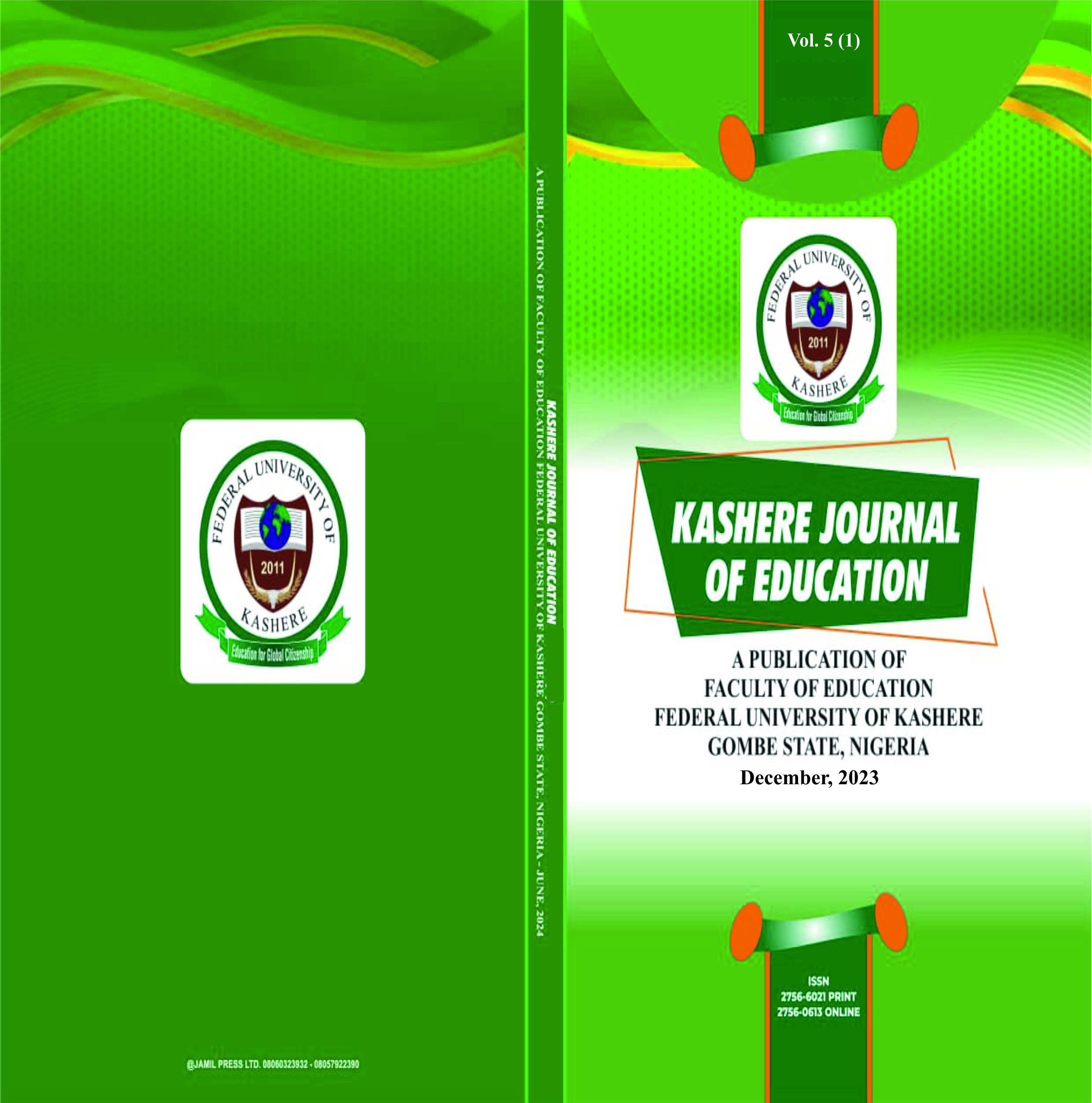Main Article Content
Effect of Modeling Strategy on Mathematics Performance of Primary Six Pupils with Dyscalculia of Katsina State
Abstract
This research work studied the effect of modelling strategy on the mathematics performance of primary six pupils with dyscalculia. Two research hypotheses were formulated to guide the study. The study employed an experimental design of pre-test, posttest, and control group design. The population of the study was 150 primary six pupils of Makera public primary school, Dutsin-ma. Purposive sampling technique was employed, and twenty-six pupils with dyscalculia were selected. They were randomly assigned to experimental and control groups. The instrument for data collection was a 20-item Mathematics Achievement Test (MAT). The instrument was face- and content-validated control, and the experimental groups were made up of a combination of 13 boys and 13 girls. These were randomly sampled from primary six pupils of Makera primary school, Dutsin-ma Katsina State. Both groups were pre-tested. The experimental group was exposed to treatment using the modelling strategy, while the control group was taught using a different method, after which both the control and experimental groups were subjected to a post-test. The hypotheses were tested at the 0.05 level of significance using a t-test for independent samples. The findings revealed the significant effect on the mean achievement scores of pupils with dyscalculia in mathematics; there is no significant influence of gender on mathematics achievement scores of primary six pupils with dyscalculia. Based on the findings, it was recommended that teachers should make use of modelling strategies as a means of enhancing mathematics performance among primary schools’ pupils with mathematics difficulties.







